BIODIVERSITY IN THE QUR’AN: SCIENTIFIC AND QUR’ANIC INSIGHTS
Biodiversity refers to the richness and variety of all living forms on Earth, including plants, animals, microorganisms, and the ecosystems that sustain them. It is the result of more than 3.5 billion years of evolution and adaptation. Scientifically, biodiversity represents the complex web of interdependence among species that maintains ecosystem stability and the balance of nature.
From an Islamic perspective, biodiversity is not a mere coincidence of evolution or natural selection. It is a manifestation of Divine Will and a reflection of the tawḥīdī (unified) order of the cosmos. The Qur’an frequently invites humankind to reflect upon the diversity of creation as a sign (āyah) of Allah’s wisdom, power, and mercy. Diversity in colour, form, and function is not a random occurrence; it serves as a reminder that all creation, in its diversity, glorifies the Creator.
Allah declares in the Qur’an:
"أَلَمْ تَرَ أَنَّ اللَّهَ أَنْزَلَ مِنَ السَّمَاءِ مَاءً فَأَخْرَجْنَا بِهِ ثَمَرَاتٍ مُخْتَلِفًا أَلْوَانُهَا وَمِنَ الْجِبَالِ جُدَدٌ بِيضٌ وَحُمْرٌ مُخْتَلِفٌ أَلْوَانُهَا وَغَرَابِيبُ سُودٌ"
“Do you not see that Allah sends down water from the sky, and with it We bring forth fruits of various colours? And in the mountains are streaks—white and red—of various shades, and others raven-black.” (Qur’an 35:27)
This verse from Sūrah Fāṭir presents the diversity of life and nature as a divine tapestry, each colour, species, and form composed by the will of the Creator.
THE QUR’ANIC PERSPECTIVE
Sign of Divine Wisdom
The Qur’an repeatedly asserts that the diversity of life is a deliberate act of creation, a symbol of divine artistry. In Sūrah al-An‘ām, Allah declares:
"وَمَا مِن دَابَّةٍ فِي الْأَرْضِ وَلَا طَائِرٍ يَطِيرُ بِجَنَاحَيْهِ إِلَّا أُمَمٌ أَمْثَالُكُمْ"
“There is no creature crawling on the earth, nor bird flying with its wings, but they are communities like you.” (Qur’an 6:38)
This verse illustrates a foundational Islamic ecological principle: every creature is a nation, a community with purpose and order. The natural world is not subordinate to human existence; rather, it functions as part of an interconnected whole under divine law.
Allah also commands humankind to maintain the balance (mīzān) established in creation:
"وَالسَّمَاءَ رَفَعَهَا وَوَضَعَ الْمِيزَانَ أَلَّا تَطْغَوْا فِي الْمِيزَانِ"
“And He raised the heaven and established the balance, so that you may not transgress the balance.” (Qur’an 55:7–8)
Thus, biodiversity is an expression of divine balance. To destroy or exploit it unjustly is to disturb the equilibrium of creation—an act condemned by the Qur’an.
Qur’anic Chapters Named After Living Beings
Amazingly, the Qur’an underscores the importance of biodiversity by naming several surahs after animals and plants. These include Al-Baqarah (The Cow), Al-An‘ām (The Cattle), Al-Nahl (The Bee), Al-Naml (The Ant), Al-‘Ankabūt (The Spider), Al-Fīl (The Elephant), and Al-Tīn (The Fig). This thematic naming is more than literary; it reflects the sacred presence of living creatures within the Qur’anic worldview. Each of these surahs associates the named species with moral or spiritual lessons.
For instance, Sūrah al-Nahl (The Bee) highlights the bee’s instinctive obedience to divine command and its contribution to human well-being:
"وَأَوْحَىٰ رَبُّكَ إِلَى النَّحْلِ أَنِ اتَّخِذِي مِنَ الْجِبَالِ بُيُوتًا وَمِنَ الشَّجَرِ وَمِمَّا يَعْرِشُونَ"
“And your Lord inspired the bee: ‘Take for yourself among the mountains houses, and among the trees and in what they construct.’” (Qur’an 16:68)
This divine inspiration (waḥy) to a non-human species emphasizes the sanctity of all life and its participation in the divine order.
Scientific Understanding of Biodiversity and Its Types
While the Qur’an emphasizes the theological and moral dimensions of biodiversity, modern science categorizes biodiversity into three main types: genetic, species, and ecosystem diversity. Each level reflects a different aspect of the Creator’s design.
Genetic Diversity
Genetic diversity refers to the variety of genes within a single species. This diversity allows organisms to adapt to environmental changes, ensuring survival across generations. In the Qur’an, Allah reminds humanity that He created every living being in pairs and with unique attributes:
"وَمِن كُلِّ شَيْءٍ خَلَقْنَا زَوْجَيْنِ لَعَلَّكُمْ تَذَكَّرُونَ"
“And of all things We created two mates; perhaps you will remember.” (Qur’an 51:49)
This genetic variation is not random; it serves a divine purpose. Just as human beings differ in languages and colours, all living organisms express the beauty of divine creativity.
Species Diversity
Species diversity refers to the number of species within a given habitat. The Qur’an acknowledges this diversity as a cause for reflection:
"وَمِنَ النَّاسِ وَالدَّوَابِّ وَالْأَنْعَامِ مُخْتَلِفٌ أَلْوَانُهُ كَذَٰلِكَ ۗ إِنَّمَا يَخْشَى اللَّهَ مِنْ عِبَادِهِ الْعُلَمَاءُ"
“And among humans, animals, and cattle are those of various colours likewise. It is those who have knowledge who truly fear Allah.” (Qur’an 35:28)
This verse beautifully ties biodiversity to knowledge and humility: true scholars observe creation attentively and recognise divine skill in every colour, texture, and form.
Ecosystem Diversity
Ecosystem diversity refers to the variety of habitats, ecological communities, and natural processes. Each ecosystem—whether desert, forest, or ocean—has its own rhythm and purpose. The Qur’an describes this complexity with profound simplicity:
"وَهُوَ الَّذِي أَنشَأَ جَنَّاتٍ مَّعْرُوشَاتٍ وَغَيْرَ مَعْرُوشَاتٍ وَالنَّخْلَ وَالزَّرْعَ مُخْتَلِفًا أُكُلُهُ"
“And He it is who causes gardens to grow, trellised and untrellised, and palm trees and crops of diverse taste.” (Qur’an 6:141)
The imagery highlights not only ecological variety but also a moral injunction: “Eat of its fruit when it produces and give its due (zakāh) on the day of harvest, and do not be excessive. Indeed, Allah does not love the wasteful.” Here, environmental ethics and spiritual accountability come together seamlessly.
THREAT TO BIODIVERSITY: A QUR’ANIC ETHICAL VIEW
Human Corruption and Environmental Degradation
The Qur’an clearly warns against human exploitation and ecological imbalance. Modern threats such as deforestation, pollution, overexploitation, and climate change reflect the very corruption (fasād) the Qur’an condemns:
"وَإِذَا تَوَلَّى سَعَى فِي الْأَرْضِ لِيُفْسِدَ فِيهَا وَيُهْلِكَ الْحَرْثَ وَالنَّسْلَ ۗ وَاللَّهُ لَا يُحِبُّ الْفَسَادَ"
“And when he turns away, he strives throughout the land to cause corruption therein and destroy crops and descendants. And Allah does not like corruption.” (Qur’an 2:205)
This verse not only describes the moral corruption of individuals but also extends to ecological corruption—the destruction of ḥarth (agriculture) and nasl (descendants). Environmental care, therefore, is not an optional virtue in Islam; it is a divine responsibility.
The Consequences of Imbalance
Islamic theology views natural disasters and destruction not as random occurrences, but as reminders of the consequences of human negligence. The Qur’an speaks of earlier nations destroyed for arrogance and carelessness—lessons that warn modern civilization against environmental arrogance.
"ظَهَرَ الْفَسَادُ فِي الْبَرِّ وَالْبَحْرِ بِمَا كَسَبَتْ أَيْدِي النَّاسِ لِيُذِيقَهُم بَعْضَ الَّذِي عَمِلُوا لَعَلَّهُمْ يَرْجِعُونَ"
“Corruption has appeared on land and sea because of what the hands of people have earned, so He may let them taste part of what they have done, that they might return.” (Qur’an 30:41)
This verse captures the essence of the ecological crisis: human greed disrupts divine balance, resulting in environmental suffering meant to awaken reflection and return.
THE QUR’AN AND ECOLOGICAL RESPONSIBILITY
The Concept of Khilāfah (Representative)
Human beings are described as khulafā’—caretakers of the Earth:
"هُوَ الَّذِي جَعَلَكُمْ خَلَائِفَ فِي الْأَرْضِ"
“He it is who made you successors upon the earth.” (Qur’an 35:39)
This implies responsibility, not domination. Humanity must protect biodiversity as an act of gratitude and obedience to Allah. Wastefulness and pollution violate this trust. The Qur’an advises self-control and prohibits extravagance in consumption:
"وَلَا تُسْرِفُوا إِنَّهُ لَا يُحِبُّ الْمُسْرِفِينَ"
“And do not be excessive. Indeed, He does not love the wasteful.” (Qur’an 6:141)
This principle naturally extends to the balanced use of resources, forming an ethical foundation that aligns closely with contemporary environmental policies.
Biodiversity, from both Qur’anic and scientific perspectives, reflects divine order, mercy, and balance. The Qur’an’s emphasis on the harmony of creation, the sacredness of all living beings, and human responsibility as caretakers forms the theological core of an Islamic environmental ethic.
Modern science confirms this Qur’anic insight: life flourishes through interdependence and balance. When humans disrupt that balance, both nature and humanity suffer. Therefore, preserving biodiversity is not merely a scientific or social duty—it is an act of faith, gratitude, and submission to Allah’s will.
“Indeed, in the creation of the heavens and the earth and the alternation of night and day are signs for those of understanding.”
About the author:
Adil Kadavath is a postgraduate scholar at Darul Huda Islamic University, currently studying in the Department of Study of Religion. He is also pursuing a B.A. in History at IGNOU. His research interests include religious studies and Indian and Islamic history.
References:
- The Qur’an. Translated by M. A. S. Abdel Haleem. Oxford: Oxford University Press, 2004.
- Harun Yahya (Adnan Oktar). The Miracles of the Qur’an. Istanbul: Ta-Ha Publishers, 2000.
- Maurice Bucaille. The Bible, the Qur’an and Science. Paris: Seghers, 1976.
- Fazlur Rahman. Major Themes of the Qur’an. 2nd ed., 1980.
- Sayyid Qutb. Fī Ẓilāl al-Qur’ān (In the Shade of the Qur’an). Translated by Adil Salahi and Ashur A. Shamis. Leicester: The Islamic Foundation, 1999.
- Seyyed Hossein Nasr. Religion and the Order of Nature. New York: Oxford University Press, 1996.
Disclaimer
The views expressed in this article are the author’s own and do not necessarily mirror Islamonweb’s editorial stance.

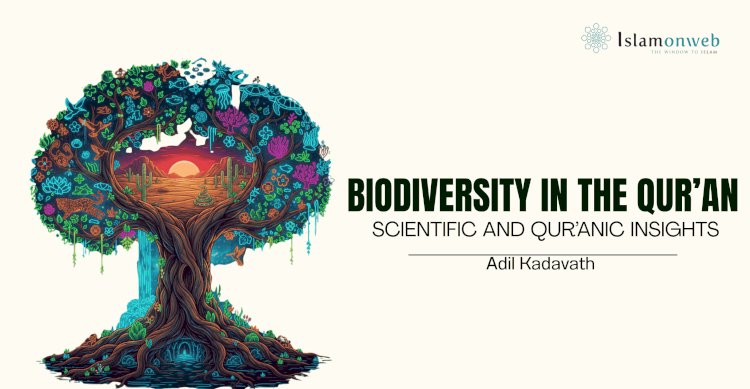


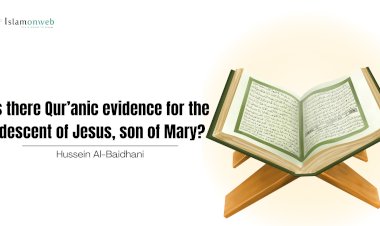
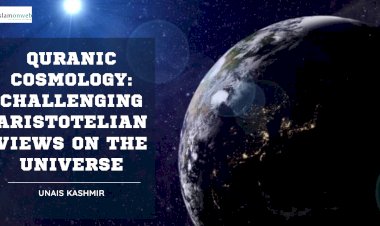
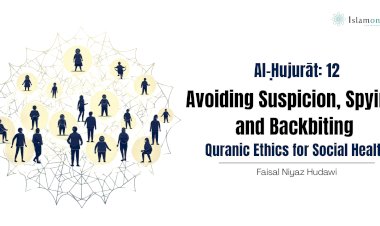

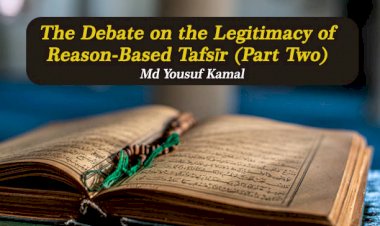
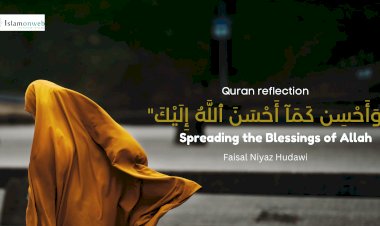














Leave A Comment